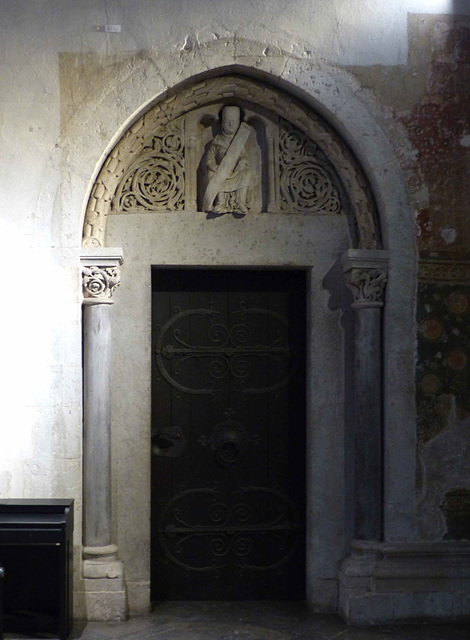Brauweiler - St. Nikolaus
Brauweiler - St. Nikolaus
Quakenbrück - St. Sylvester
Quakenbrück - St. Sylvester
Quakenbrück - St. Marien
Quakenbrück - Gumball machine
Heidelberg
Heidelberg - Kunstfeuerwerkerei
Lago di Como
Lago di Como
Como - Duomo di Como
Como - Duomo di Como
Como - Duomo di Como
Como - Duomo di Como
Pumenengo - Santuario della Madonna della Rotonda
Pumenengo - Santuario della Madonna della Rotonda
Venezia - Piazza San Marco
Venezia - Carole Feuerman
Venezia - Canal Grande
Venezia - Hats
Venezia - Cinema Teatro Progresso
Venezia - Gondola
Venezia - Molino Stucky
Brauweiler - St. Nikolaus
Brauweiler - St. Nikolaus
Brauweiler - St. Nikolaus
Brauweiler - St. Nikolaus
Brauweiler - St. Nikolaus
Brauweiler - St. Nikolaus
Brauweiler - St. Nikolaus
Brauweiler - Abtei
Brauweiler - Bee Feed
Niedersachsen
Hildesheim - Dommuseum
Hildesheim - Dommuseum
Hildesheim - Dommuseum
Hildesheim - Dommuseum
Hildesheim - Dommuseum
Hildesheim - Dommuseum
Hildesheim - Dommuseum
Hildesheim - Dommuseum
Hildesheim - Dommuseum
Hildesheim - Dommuseum
Hildesheim - Dommuseum
Hildesheim - Dommuseum
Location
Lat, Lng:
You can copy the above to your favourite mapping app.
Address: unknown
You can copy the above to your favourite mapping app.
Address: unknown
Keywords
Authorizations, license
-
Visible by: Everyone -
All rights reserved
-
131 visits
Brauweiler - St. Nikolaus


Brauweiler, now a district of Pulheim, borders Cologne to the east, but is still largely surrounded by agriculture.
In the "Fundatio monasterii Brunwilarensis", a source of the late 11th century, the construction of a wooden chapel in which relics of Saint Medardus from Soissons were kept is mentioned. Count-Palatine Hermann I had a new chapel built of stone and rebuilt a destroyed manor nearby.
Around 991, the wedding between Count Palatine Ezzo-Ehrenfried and Mathilde, a daughter of Emperor Otto II and Theophanu, took place here. On this occasion, Ezzo transferred the estate.
During a pilgrimage to Rome before 1024, Ezzo and Mathilde received relics of St. Nicholas and a cross from the Pope for the foundation of a monastery.
The abbot Poppo of Stablo was entrusted with the foundation of the monastery. In 1024 seven monks arrived at Brauweiler and began the construction of the monastery. The church and monastery were consecrated in 1028. From 1065 until his death in 1091, Wolfhelm of Brauweiler, later Saint Wolfhelm, was abbot here.
A period of prosperity was brought about by the introduction of the Bursfeld Reform in 1467. The abbey last built the prelate's wing from 1780 to 1785. After the French occupation of the Left Bank of the Rhine, the abbey was dissolved in 1802 in the course of secularization. The abbey church became a parish church, while the buildings were used as a labor institution from 1815 by the Prussian government. Since 1920, the "Bewahrungshaus" and "Zellengebäude" were rented to the Cologne justice administration.
These two buildings served as a concentration camp for one year starting in 1933, then as a prison for the Cologne Gestapo until 1945. Over 1000 people were imprisoned here by the Nazis during the entire period.
St. Nikolaus, the former abbey church, was built between 1136 and 1240.
Some of the romanesque works show french influences.
Translate into English
In the "Fundatio monasterii Brunwilarensis", a source of the late 11th century, the construction of a wooden chapel in which relics of Saint Medardus from Soissons were kept is mentioned. Count-Palatine Hermann I had a new chapel built of stone and rebuilt a destroyed manor nearby.
Around 991, the wedding between Count Palatine Ezzo-Ehrenfried and Mathilde, a daughter of Emperor Otto II and Theophanu, took place here. On this occasion, Ezzo transferred the estate.
During a pilgrimage to Rome before 1024, Ezzo and Mathilde received relics of St. Nicholas and a cross from the Pope for the foundation of a monastery.
The abbot Poppo of Stablo was entrusted with the foundation of the monastery. In 1024 seven monks arrived at Brauweiler and began the construction of the monastery. The church and monastery were consecrated in 1028. From 1065 until his death in 1091, Wolfhelm of Brauweiler, later Saint Wolfhelm, was abbot here.
A period of prosperity was brought about by the introduction of the Bursfeld Reform in 1467. The abbey last built the prelate's wing from 1780 to 1785. After the French occupation of the Left Bank of the Rhine, the abbey was dissolved in 1802 in the course of secularization. The abbey church became a parish church, while the buildings were used as a labor institution from 1815 by the Prussian government. Since 1920, the "Bewahrungshaus" and "Zellengebäude" were rented to the Cologne justice administration.
These two buildings served as a concentration camp for one year starting in 1933, then as a prison for the Cologne Gestapo until 1945. Over 1000 people were imprisoned here by the Nazis during the entire period.
St. Nikolaus, the former abbey church, was built between 1136 and 1240.
Some of the romanesque works show french influences.
kiiti has particularly liked this photo
- Keyboard shortcuts:
Jump to top
RSS feed- Latest comments - Subscribe to the comment feeds of this photo
- ipernity © 2007-2025
- Help & Contact
|
Club news
|
About ipernity
|
History |
ipernity Club & Prices |
Guide of good conduct
Donate | Group guidelines | Privacy policy | Terms of use | Statutes | In memoria -
Facebook
Twitter

Sign-in to write a comment.